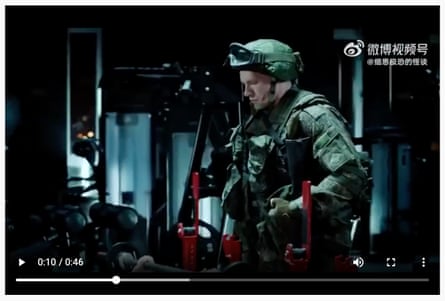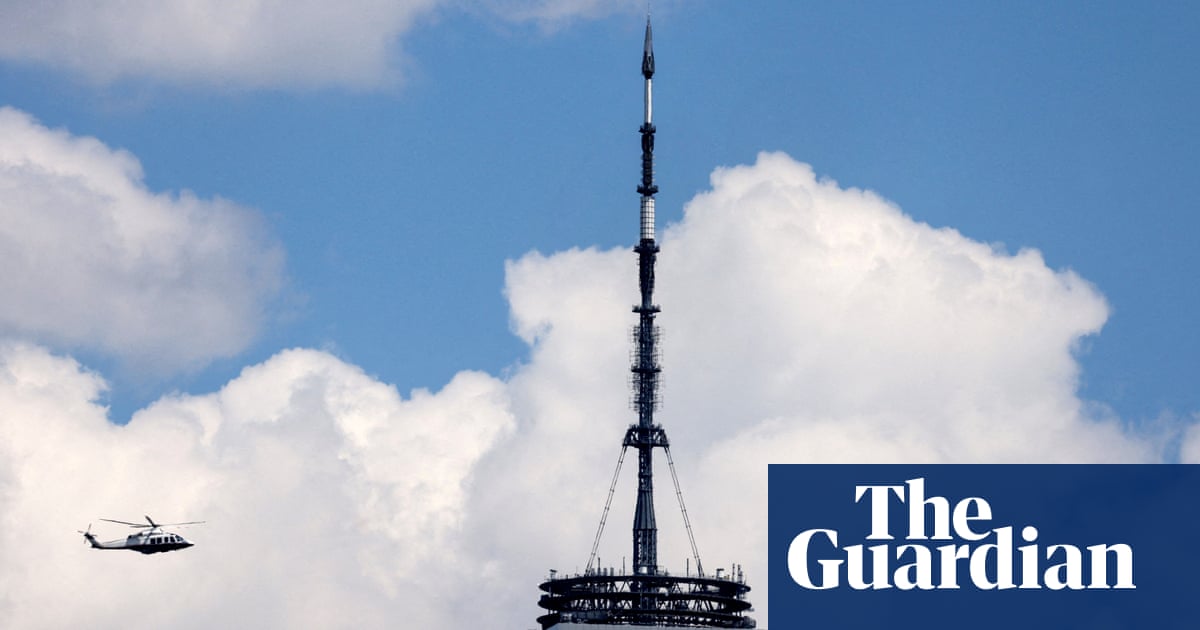The videos are across Chinese social media. Some are slickly produced Russian propaganda about being “tough” men; some sound more like influencer advertisements for a working holiday. Others are cobbled-together screenshots by regular citizens about to leave China. But they all have one thing in common: selling the benefits of becoming a Chinese mercenary for Russia.
On Tuesday, the Ukrainian president, Volodymyr Zelenskyy, announced that two Chinese nationals had been captured in the eastern Donetsk region and accused Moscow of trying to involve China “directly or indirectly” in the conflict. A day later, he said the men were among at least 155 other Chinese members of Russia’s armed forces.
China says it is a neutral party to the conflict, although its leader, Xi Jinping, and Russia’s president, Vladimir Putin, are public allies, with a “no limits” partnership between their two nations.
Zelenskyy demanded answers from Beijing, accusing it of turning a blind eye to Russia’s recruitment of its citizens. Russia is known to have used or attempted to recruit foreign mercenaries or soldiers – including from North Korea, Syria and Libya – during the conflict. He said Russia was recruiting Chinese fighters through ads on Chinese social media platforms such as Douyin, the Chinese version of TikTok, and that Beijing was aware of it.
Numerous recruitment clips are easily found on Chinese social media. All of them emphasise the pay on offer, ranging from 60,000 to 200,000 RMB (£6,000 to £21,000) as a sign-on bonus and monthly salaries of about 18,000 RMB (£1,900).
One video, which has had hundreds of thousands of views across different platforms, appears to be a Russian recruitment ad with Chinese subtitles overlaid. It shows Caucasian men leaving their day jobs to fight and asks viewers: “Do you want to show strength here? Is this the path that you long for? You are a tough man, be like them!”

Another popular video is by someone claiming to have already been recruited. “Due to the ongoing conflict between Russia and Ukraine, I’m heading there after the new year,” he said in December, over screenshots with information about how to sign up.
In another clip, a Russian influencer speaks to her more than 300,000 followers in Mandarin, advertising the financial benefits of joining Russia’s army, with sign-on bonuses and monthly payments from the Russian government and military as well as housing benefits and medical and childcare.
“Trained by experienced coaches, equipped with the best professional equipment,” she says. “In Moscow, anyone under 60 years old can sign up, regardless of whether they have served in foreign military service. Foreign and Russian citizens can sign up voluntarily.”
Responses varied, especially to the posts by Chinese people saying they were signing up. Some asked how they could be involved, or if not speaking Russian was a barrier. “Is there a team in Shanxi? Count me in. I have a passport ready and can leave at any time,” said one user.
Many noted higher wages being offered than what they earned in China. Comments that people were signing up to be “cannon fodder” are common.
Three weeks ago, the Chinese journalist and author Chai Jing interviewed a Chinese citizen who joined Russian forces in November 2023 by flying to Russia on a tourist visa.
The soldier told her he was in Bakhmut as part of an “assault team” near the frontlines. He said “money played a part” in his decision to join, but he was driven mainly by never having experienced war despite being a member of China’s military.
after newsletter promotion
He suggested he could have joined either side, but there were more Chinese fighters on the Russian side, probably because visas were easier to obtain, but also because they felt Russia was helping China. But he wanted to show people at home what the “brutal” reality was like.
“I realised I might die here one day, so I decided to share some real experiences since China’s people haven’t been through a war for a long time,” he said, adding that he hoped China would plan a stable role and “refrain from starting or joining wars”.
Last week, Chai interviewed Chinese soldiers on Ukraine’s side, saying there were far fewer of them than in Russia. Ukraine denies it recruits mercenaries but allows foreign volunteers to become part of its armed forces.
Comments from Chinese officials on Wednesday suggested people were joining up on their own initiative, though officials in Beijing said the idea that significant numbers were involved in the war was “totally unfounded”.
“Let me stress that the Chinese government always asks Chinese nationals to stay away from areas of armed conflict, avoid any form of involvement in armed conflict, and in particular avoid participation in any party’s military operations,” the foreign ministry spokesperson, Lin Jian, told a regular press briefing in Beijing.
On Thursday, when asked about Zelenskyy’s claims about Chinese fighters, Lin called for “relevant parties” to “refrain from expressing irresponsible remarks”.
But the fact that recruitment posts are online – and have remained there for up to several months despite being shared hundreds of thousands of times – suggests that at best there has not been a concerted effort by authorities to address them. China’s social media are strictly monitored and controlled, with fast and effective censorship of sensitive or critical terms and topics.

 4 weeks ago
20
4 weeks ago
20













































